
views
Choosing the Right Supplement
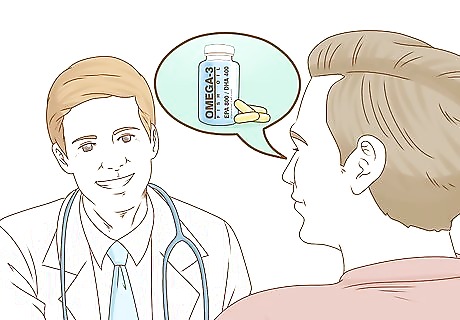
Ask your doctor if you should take omega-3 supplements. It's possible that you are already getting enough omega-3 simply through the foods you eat. In that case, you likely don't need a supplement. However, if you have heart disease, your doctor might recommend a supplement. Fish oil can help reduce the risk of heart attacks and possibly strokes. It can also lower high blood pressure. If you deal with any of these issues, ask your doctor if you need a supplement. Pregnant women might also need to take fish oil supplements, as they might be avoiding fish while pregnant. Fish oil is generally safe to take while pregnant, but you should always check with your doctor first. If you suffer from rheumatoid arthritis, ask your doctor if fish oil could ease your pain.
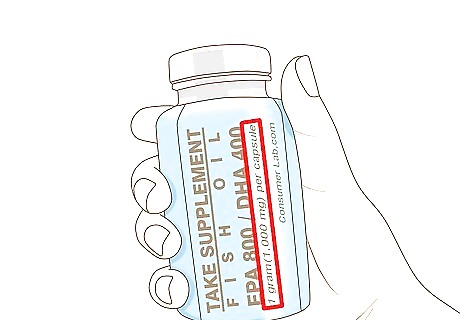
Look for a 1 gram pill or capsule for easy dosing. Most people need a supplemental dose of 1 gram (1,000 mg). Purchasing supplements that are 1 gram is an easy way to make sure that you are getting the right amount. The package should clearly state the dosage amount. Make sure to ask your doctor what amount you should be taking. Triglycerides are a type of fat found in your blood that can cause problems like high blood pressure. If you have high triglycerides, your doctor might suggest 2-4 grams of omega-3s per day. You can also purchase a liquid supplement. Just ask your doctor how many milligrams you should take.
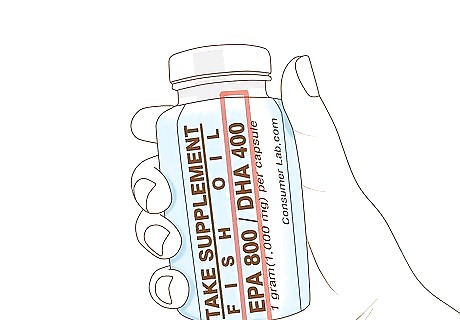
Read the package to see if it contains both DHA and EPA. Eicosapentaenoic (EPA) and docosahexaenoic (DHA) are 2 different types of fatty acids. They both promote different health benefits, so the best omega-3 supplements will contain both DHA and EPA. Check the ingredients to make sure that both are listed.
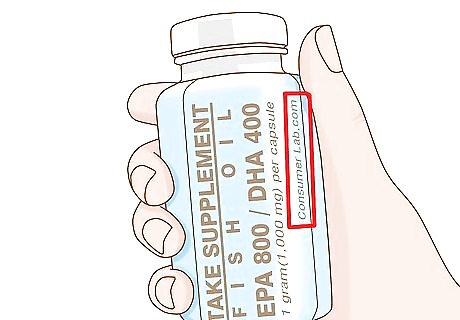
Make sure to select a quality product. Some brands offer better quality than others. Typically, the best supplements contain the most amount of pure fish oil. Check the label to see if the manufacturer is reputable. If the package shows that it is approved by U.S. Pharmacopeia, NSF International, or ConsumerLab.com, that is a good indicator that it is a quality product. If your supplements have a fishy taste or smell, that is an indicator that the quality is not good. It might seem counterintuitive, but fish oil shouldn't have the odor or taste of fish. Even fresh fish should not smell fishy!
Using Supplements Safely
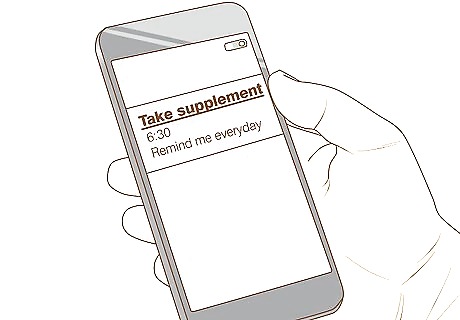
Take the recommended dosage at a convenient time of day. You'll get the same benefits from omega-3 supplements no matter whether you take them in the morning or evening. Just pick a time of day that you are likely to remember to take them. For example, you could take them each morning with your breakfast. Try setting a reminder on your phone if you're worried you will forget to take your supplements.

Swallow the pills with water. If you are taking pills or capsules, they'll go down easier if you follow them with a glass of water. You could also take them with another beverage, such as tea or juice. Purchase the liquid form if you don't like pills. You can also wash the liquid down with water. You can take omega-3s either with food or on an empty stomach. If you get “fish oil burps” or burps that have a fishy flavor, try storing the capsules in your fridge or freezer.

Ask your doctor about possible drug interactions. While fish oil supplements are generally considered safe, it's possible that other medications might cancel out the benefits of the omega-3s. Tell your doctor about all of your medications, especially: Anti-coagulant and anti-platelet drugs, supplements, and herbs Blood-pressure drugs, herbs, and supplements Contraceptive drugs Vitamin E
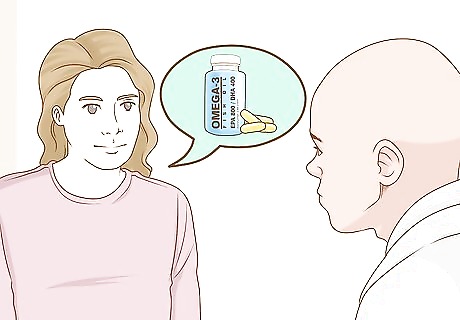
Talk to your doctor about potential side effects. Getting too much omega-3 can result in the risk of bleeding or stroke. Make sure to only take the recommended dose. Even when taken correctly, supplements might sometimes cause: Bad breath Nausea Loose stools














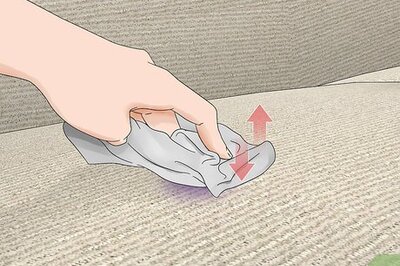



Comments
0 comment